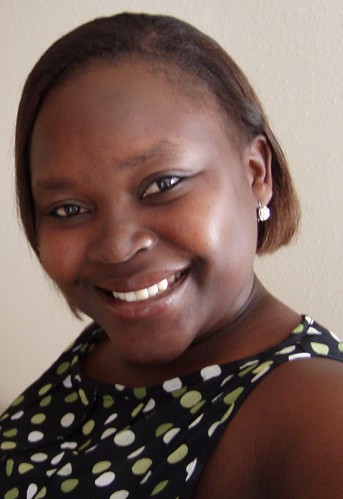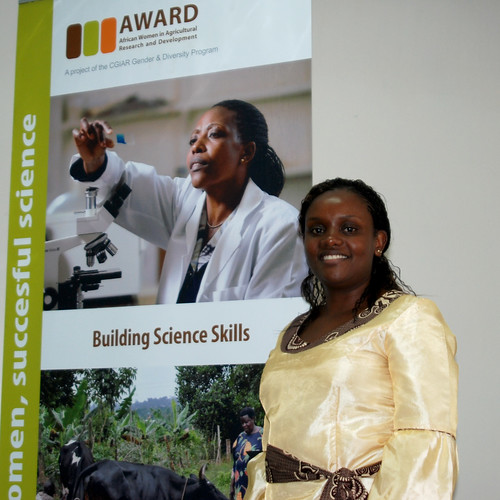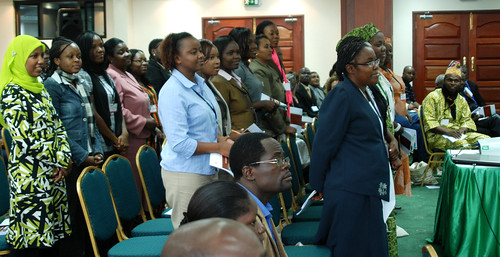 Together with Lillian Wambua and Nimmo Gacheru, Racheal Aye (pictured) was one of the International Livestock Research Institute (ILRI) scientists among 70 African women agricultural researchers selected for the 2011 fellowships of the African Women in Agricultural Research and Development (AWARD), which were announced on Thursday 18 August at Jacaranda Hotel in Nairobi. AWARD is an initiative of the Gender and Diversity program of the Consultative Group on International Agricultural Research (CGIAR).
Together with Lillian Wambua and Nimmo Gacheru, Racheal Aye (pictured) was one of the International Livestock Research Institute (ILRI) scientists among 70 African women agricultural researchers selected for the 2011 fellowships of the African Women in Agricultural Research and Development (AWARD), which were announced on Thursday 18 August at Jacaranda Hotel in Nairobi. AWARD is an initiative of the Gender and Diversity program of the Consultative Group on International Agricultural Research (CGIAR).
Aye, from ILRI’s Biotechnology Theme – all of this year’s ILRI AWARD fellows work in the theme – is a PhD student with the contagious bovine pleuropneumonia project. Her interest in the economic effects and public health impacts of trans-boundary animal diseases has focused her research on the effects of contagious bovine pleuropneumonia, a highly infectious livestock disease that is endemic in sub-Saharan Africa and leads to reduced animal productivity causing social economic losses for many of the continents livestock farmers.
‘I hope to understand better the causes of this disease and eventually contribute solutions to help resource-poor livestock keepers who are dealing with its effects,’ said Aye, who also works as a teaching assistant at Uganda’s Gulu University. ‘As a result of my work in this project, I hope to develop an illustrated immunology book of tropical diseases for use by young scientists who are studying immunology at my university and also in the east African region.’
Aye says the AWARD fellowship will widen her network and experiences and she plans to use findings from her research in her teaching at Gulu University so those she trains can share this knowledge with rural smallholder farmers. ‘I will also organize workshops in my district with the Ugandan National Agricultural Advisory Services to empower grassroots trainers so they can pass on the knowledge on animal disease control to the rest of the community.’
Through the networks and trainings from the fellowship, Aye hopes to learn new techniques and gain more skills in genetic modifications, vaccinology, diagnostics and genetic enhancement of animal breeding and how these can be used to boost food security and to pave a way out of poverty for livestock keepers in Africa.
__
For more information on the ILRI’s 2011 African Women in Agricultural Research and Development (AWARD) fellowship winners and the projects they work in, visit the ILRI biotechnology theme blog: http://biolives.wordpress.com/


